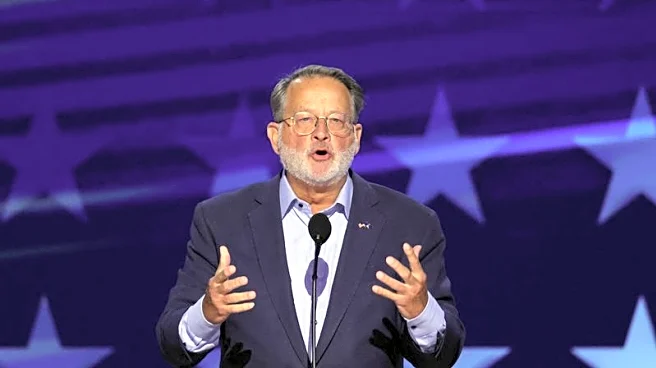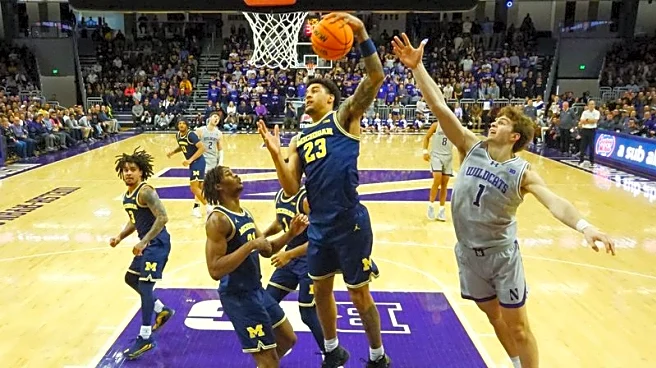What's Happening?
Mike Sullivan has been appointed as the head coach of the New York Rangers following the team's disappointing performance in the 2024-25 season. The Rangers, who previously won the Presidents' Trophy and reached the Eastern Conference Final in 2024, faced internal issues and a significant drop in performance, leading to the firing of former head coach Peter Laviolette. Sullivan, known for his successful tenure with the Pittsburgh Penguins where he won two Stanley Cups, is tasked with revitalizing the Rangers and fostering a strong team culture. He acknowledges the challenges ahead and emphasizes the need for the team to become cohesive and defensively strong to achieve success.
Why It's Important?
The appointment of Mike Sullivan as head coach is crucial for the New York Rangers as they aim to regain their competitive edge and return to Stanley Cup contention. Sullivan's experience and success with the Penguins bring hope for a turnaround in the team's performance. His focus on building a strong organizational culture and teamwork is essential for addressing the internal issues that plagued the Rangers last season. The team's ability to adapt to Sullivan's strategies and improve their cohesiveness will be pivotal in their quest for success in the upcoming season.
What's Next?
As the Rangers prepare for the 2025-26 campaign, Sullivan's approach will be closely watched by fans and analysts. His conversations with players during the offseason suggest a focus on leveraging the team's talent and fostering a competitive environment. The Rangers' performance in the early stages of the season will likely indicate how well they are adapting to Sullivan's coaching style. Stakeholders, including team management and fans, will be eager to see if Sullivan can overcome the challenges and lead the Rangers back to playoff contention.
Beyond the Headlines
Sullivan's emphasis on teamwork and defense highlights a shift in the Rangers' strategy, moving away from relying solely on offensive talent. This approach may lead to long-term cultural changes within the organization, promoting values of commitment and unity. The success of this strategy could influence other teams facing similar challenges, potentially leading to broader shifts in coaching philosophies across the league.









